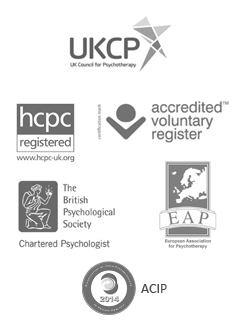When Confidence Is an Issue
Author’s Response
I’m a 31-year-old man. I didn’t put my trust in people. I don’t see how anyone can be trusted because of the many experience I’ve had throughout my life. Once their effectiveness is above, people take what they need from others and discard it. I will always want to get close to one, just like the rest of humanity, but I don’t see how that will ever be possible given my inability to trust anyone. How can one develop confidence without experiencing the pain afterwards?
The Psychologist’s Response
While faith can be one of a relationship’s most crucial components, it can also be its most detrimental. However, it’s not all that unusual for you to find it difficult to trust another. This trouble in having faith in others could arise for a variety of factors. The most typical causes of this are prior unfavorable relationships that either helped the person develop fears of being hurt or merely reinforced already-existing or learned fears. We are all aware that faith begins quite young for all of us when we are infants and reliant on our caregivers for food, care, and comfort. We occasionally overattach to the same gender parent without ever forging a trusting relationship with people of the other gender. Our ability to trust others in the future may be impacted by those around us failing to take care of us. In close associations, failing to develop confidence can result in emotional distance. The good news is that we may learn to trust again even if we do not do so at a young age.
Understanding that it is innate in all of us to believe and connect to other people is the first step in regaining our capacity for trust. Despite having been hurt in previous relationships, I think this needed persists. But, it puts us in a situation where we want to respect people but are hesitant to act on that desire. We want to get close and personal, far from our grief, but we’re afraid to take action. Recognizing our have to put our trust in others makes us feel vulnerable and uncomfortable. Being resilient is a very challenging situation for us. Some of us would rather think secure than exposed. Some people, in my experience, choose safety and solitude over happiness and attachment.
I believe that in order to advance, we must become willing to put ourselves at hazard. The possibility that we might get hurt again is a hard fact to accept. That is sometimes the result of devotion, though. Many of us must learn that even though being hurt causes us great discomfort, it won’t kill us. Although it will be challenging, we didn’t perish. We really need to have faith that we will live a breakup and make it out okay in the end. This does take some time, so it’s important to start grieving and processing the loss first. Once you accomplish this, you are prepared to move forward.
Try Website Coaching: Get Personalized Matched
( Please read the crucial explanation below. )
Here are some suggestions to help you along the way:
- Be patient.
- Actually, just take your time. We need time to physiologically return after being hurt and experiencing a decline. To recover, put things in perspective, and sorrow, we need time and space. The desire to immediately resume a relationship with that person or one new can become overwhelming when we are suddenly overcome with feelings of loneliness. We require time to be by ourselves, only, and left. This is frequently a long time during which we develop significantly. Give yourself permission to experience that development.
- Get secure.
- This shouldn’t sound in conflict with what I said about being secure earlier. The idea of making healthier decisions about who you choose to remain resilient with is more what I’m referring to these. Just traumatizing yourself in one terrible relationship after another will just make things more challenging for you in the longer run. If you don’t feel secure with the other people, it’s impossible to put yourself in a new or existing condition and restore trust. We must carefully consider the circumstances we put ourselves in and determine whether they were the best ones for us to be in or return to. Before they can even start talking about rebuilding confidence, some couples I work with in which one man has cheated frequently need time to heal and then to feel safe with the other individual. I frequently advise against going again if you can’t go back to a condition that can make you feel safe.
- Get honest.
- Finally, be prepared to discuss your doubts and fears when starting a new relationship. Be honest about your objectives and lay out your ideas on the table so that you both have a chance to try and overcome them. You get to exercise being vulnerable with the right people here. Believe it or not, sharing and being resilient with others can really lead to the development of trust.
Please examine the Important Disclaimer.
https://askthepsych.com/atp/2015/11/23/when-trust-is-a-problem/
To consult a doctor, all copyrights for this content are reserved.
Getting Motivated to Work
Query Your Own Problem! Problem from the Reader Since I lost my job a few months ago, I haven’t been able to muster …
Associations and Borderline Personality Disorder
Photo taken by Tedeytan at http :// flic.kr / p / RRxBWN- Just for show. Request a Question of Your Own! Problem from the …
When Confidence Is an Issue
Lars Plougmann’s photo is available at http :// flic.kr / p / 6zyNNg for illustration only. Ask Your Personal Issue! …

